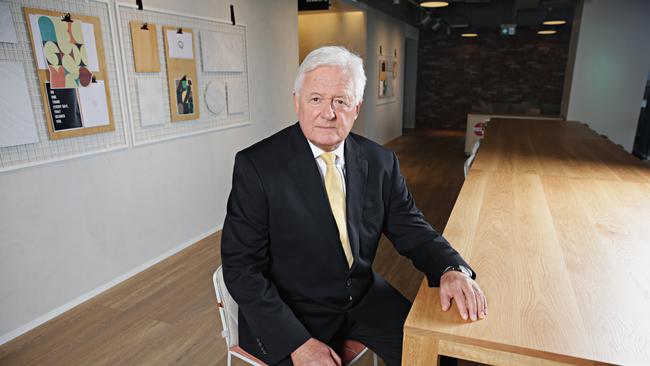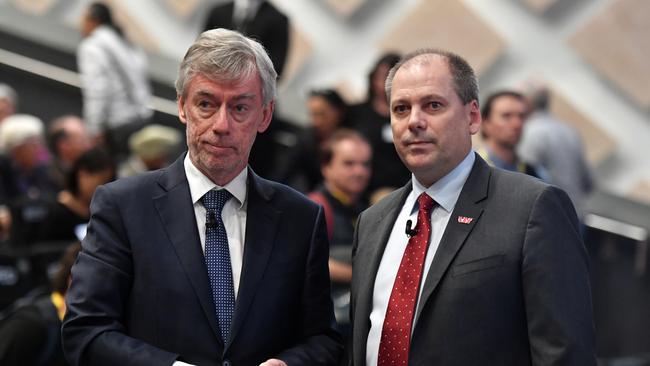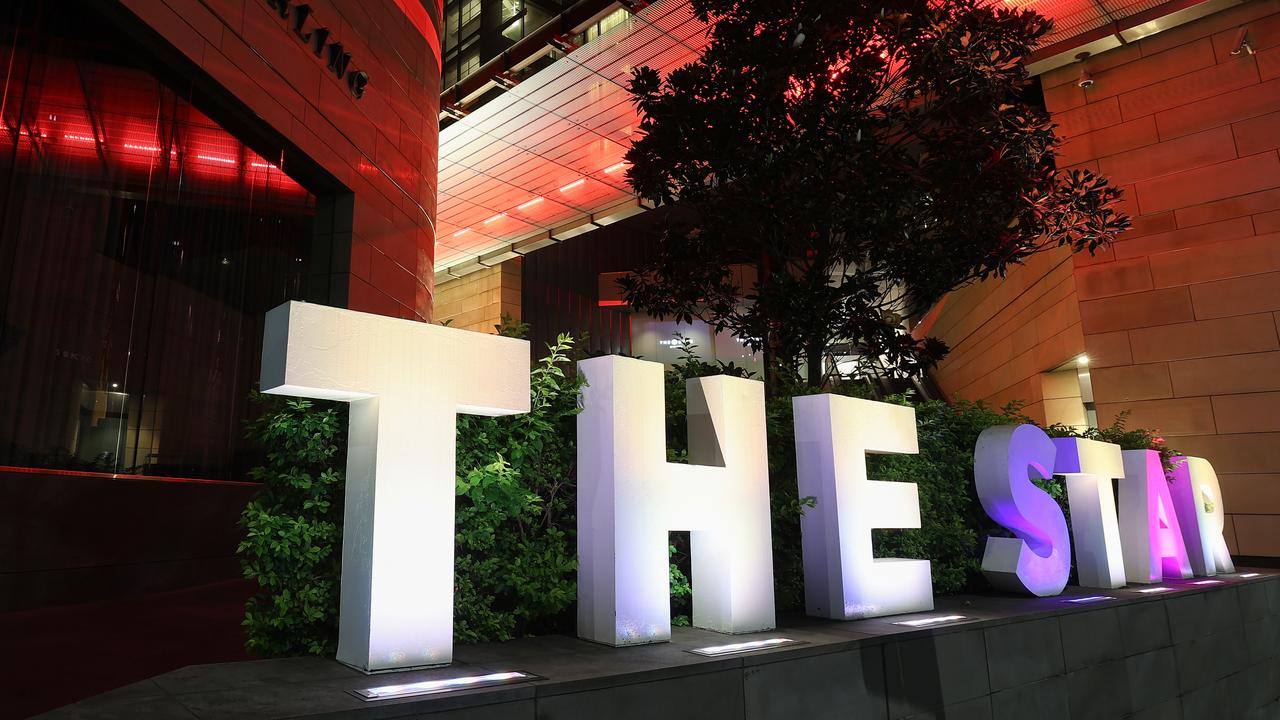Westpac chairman John McFarlane sets out change agenda

“I have significant experience in dealing with such issues, particularly from my time in London following the global financial crisis, and so am confident these can be addressed,” Mr McFarlane said in a comprehensive manifesto to shareholders.
The six-page letter amounts to a powerful repudiation of the traditional, “hands-off” approach to the non-executive chairman’s role in a large public company.
However, it comes as no surprise to people who have followed Mr McFarlane’s board career as chairman of UK bank Barclays (2015-18) and insurer Aviva (2012-15).
Peter King, anointed as chief executive after a Westpac board meeting on Wednesday, said he had no problem with his chairman’s more interventionist style.
“We worked on the plan detailed in the (shareholder) letter together,” Mr King told The Australian.
“I think about it the other way: he’s very clear on the roles of the chairman and the CEO, and he expects a lot from the CEO.
“I’m looking forward to working with him and learning from him.”
In his letter to shareholders, Mr McFarlane foreshadowed big changes to the way in which the board would operate, including the creation of a new legal and regulatory committee that would enable the risk committee to focus on the bank’s risk appetite.
The new committee would oversee regulatory and legal investigations, as well as remediation.
The nomination committee, which mainly dealt with the appointment of directors, would also oversee governance developments, as well as key management appointments reporting to Mr King.
The technology committee would oversee data, as well.
Digital focus
More broadly, Westpac had to “reinvent” itself for the digital economy and the threat posed by nimble fintech competitors, lift its game on performance and creating value, identify new revenue sources, and act with a greater sense of urgency, embracing a “higher performance and compliance ethic”.
“We are well-capitalised and highly liquid and we are very good at responding to crises,” the chairman said.
“This should give some comfort, but I do not underestimate the task ahead of us.”
Mr King, he said, had started a transformation that would see Westpac keep its focus on deeper customer relationships but move away from full matrix reporting to a clearer “line of business” model.
“This will provide more clearly defined, first-line accountability, which will see each area directly accountable for financial, compliance, performance and customer outcomes,” Mr McFarlane said.
“Having implemented such cultural change a number of times in the past, I believe the group also requires a more robust transformation and change process, reporting to the CEO to move quickly to a more effective paradigm.”
Westpac would therefore appoint an executive responsible for an end-to-end transformation program, including cultural change.
This followed feedback from regulators and the bank’s cultural and governance self-assessment that accountability was diffused, and too much time was taken to change and implement programs.
Big agenda
Mr McFarlane said the board agenda was “enormous”, with recent meetings dominated by non-financial risk and compliance issues, particularly the anti-money laundering contraventions raised in Austrac’s Federal Court statement of claim.
The Austrac matter had exposed “significant shortfalls”, he said.
Along with the coronavirus pandemic and associated economic slowdown, there was no question that non-financial risk and compliance matters had to remain a board focus.
“Over and above risk management, the board needs to allocate appropriate time to strategy, management quality, CEO succession, governance, financial performance and value creation, as well as the simplification, automation and digitisation of legacy platforms,” Mr McFarlane said.
On the virus outbreak, the bank was facing a weaker, uncertain and more volatile environment, which also reflected the rock-bottom interest rate environment.
While governments had lowered the risk through financial support for the community, it was “inevitable” that loan losses would rise.

“Given the impact of the coronavirus on the economy and the level of uncertainty, while it is difficult to make a reasonable assessment of its potential impact at the moment, we expect to see a rise in credit provisioning this year and probably beyond, which will be accelerated by recently implemented accounting standards,” the chairman said.
Remuneration, he said, was also due for a shake-up, given his “personal discomfort” with incentive-based pay and the way if diverted long-term focus to the short-term.
There was an opportunity to rebalance the pay structure of senior management to place greater emphasis on rewarding long, rather than short-term, achievement.
The bank had a lot of work to do to develop the right structure that was also in keeping with the remuneration requirements to be released by the prudential regulator.







New Westpac chairman John McFarlane has immediately asserted control over the bank's future, promising a zero tolerance approach to “controllable” risk disasters and a complete transformation of the embattled bank’s approach to risk and compliance.